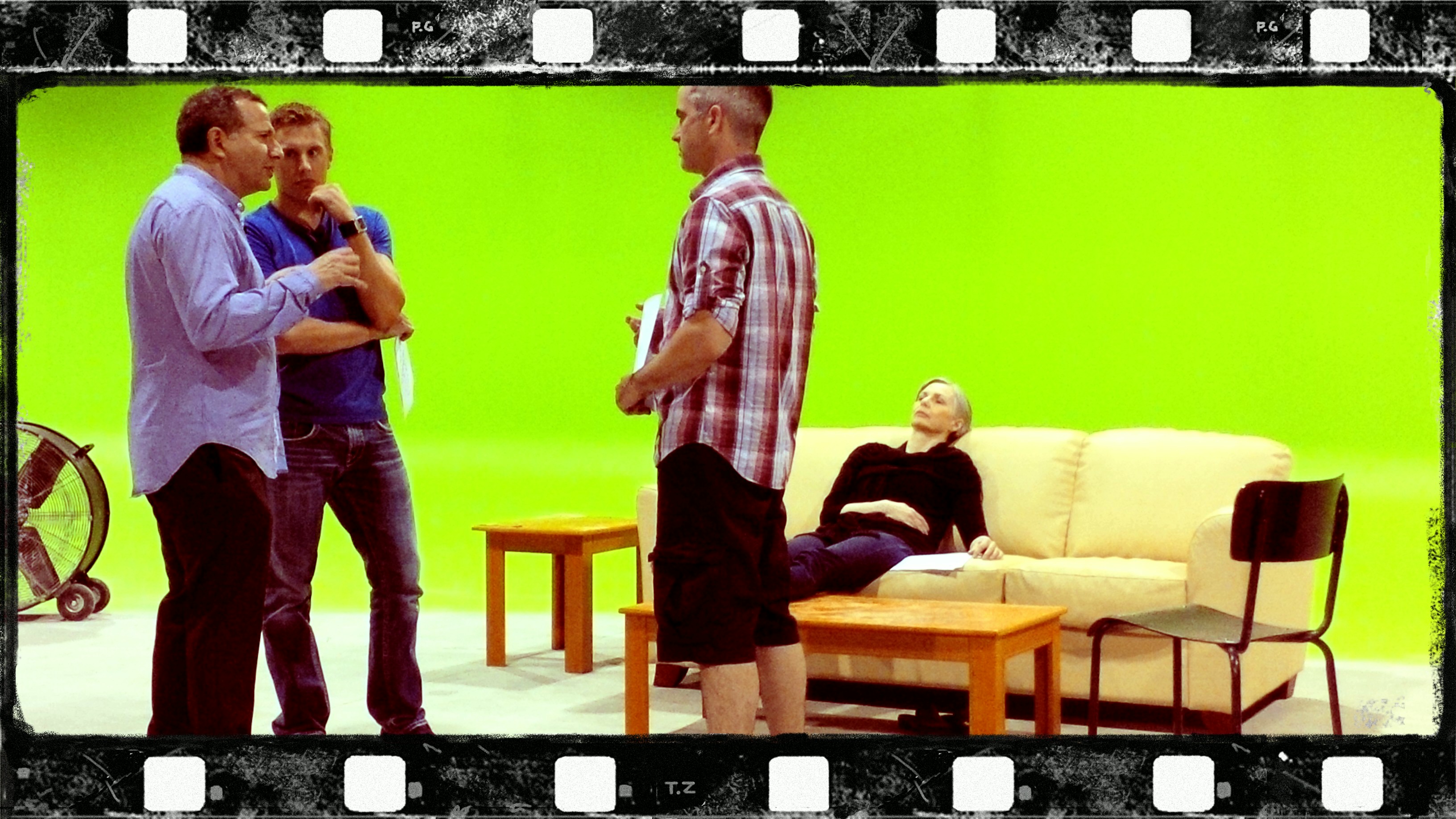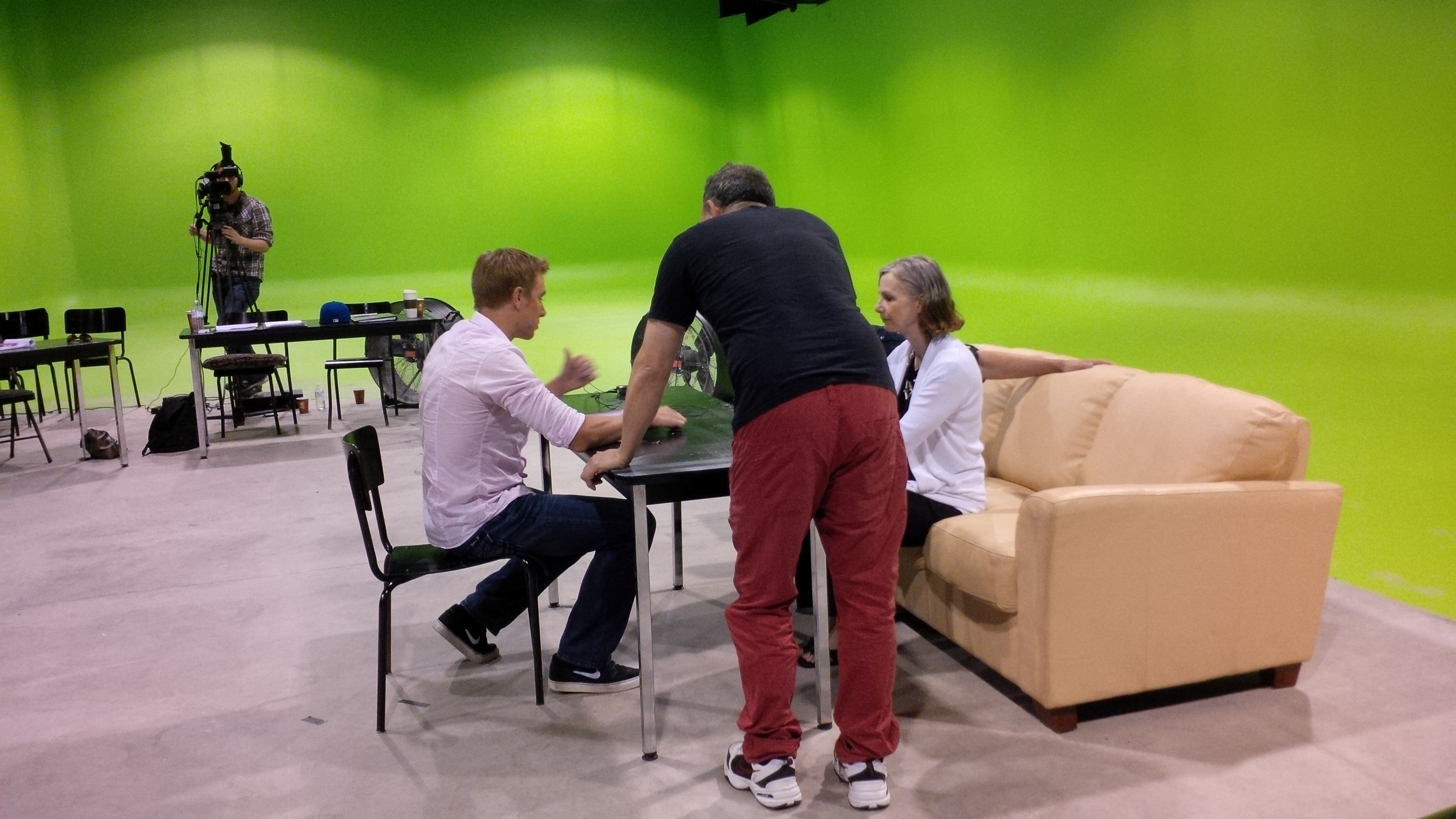What a weekend! I lucked out and had the chance to attend a filmmaker’s workshop with about 15 other people. The course was an eye opener for anyone wanting more information about how the industry actually works & what makes an actor better on set for feature film.
I believe I can speak for us all, that Steven’s love & appreciation for film being a beautiful piece of art, that can share a mystery and tell a story to an audience, inspired us all.
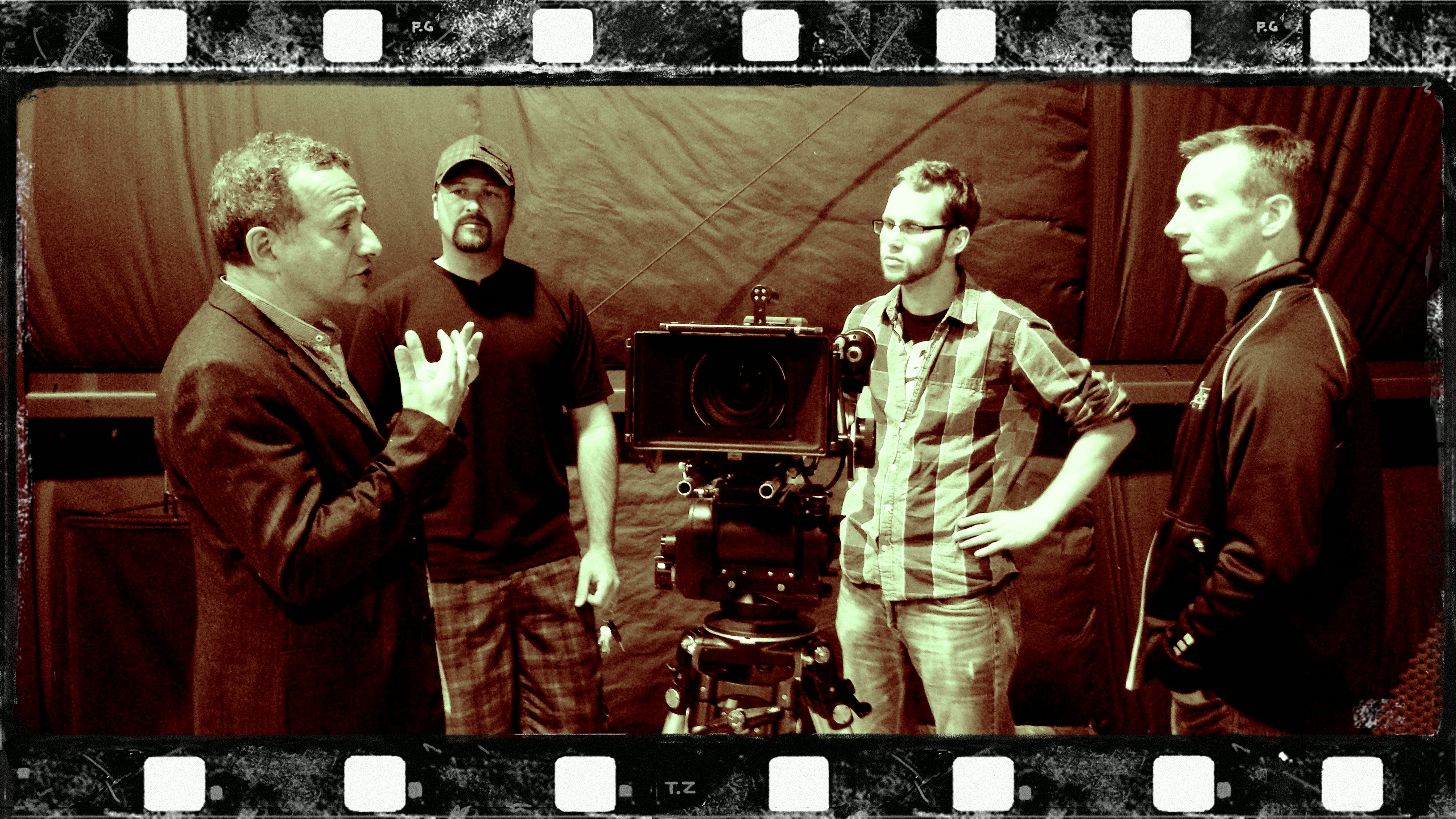
Steven Bernstein talking about the camera essentials.
One of the super cool parts about this workshop was hearing about real actors in Hollywood, how they engage on set & why finding the “truth” is so important.
On Saturday, the actors worked out a scene from Steven Bernstein’s first feature film “Decoding Annie Parker” staring Helen Hunt, Samantha Morton, Aaron Paul (Breaking Bad), Alice Eve (Star trek) and more!
Gary, from PATS Production Assistant Training Seminar, joined us on Saturday to talk about the process of being an actor on set from getting casted, being an extra, arriving on set, the procedure, the do’s and don’ts and more. Gary and Steven worked together on the set of “Magic City”
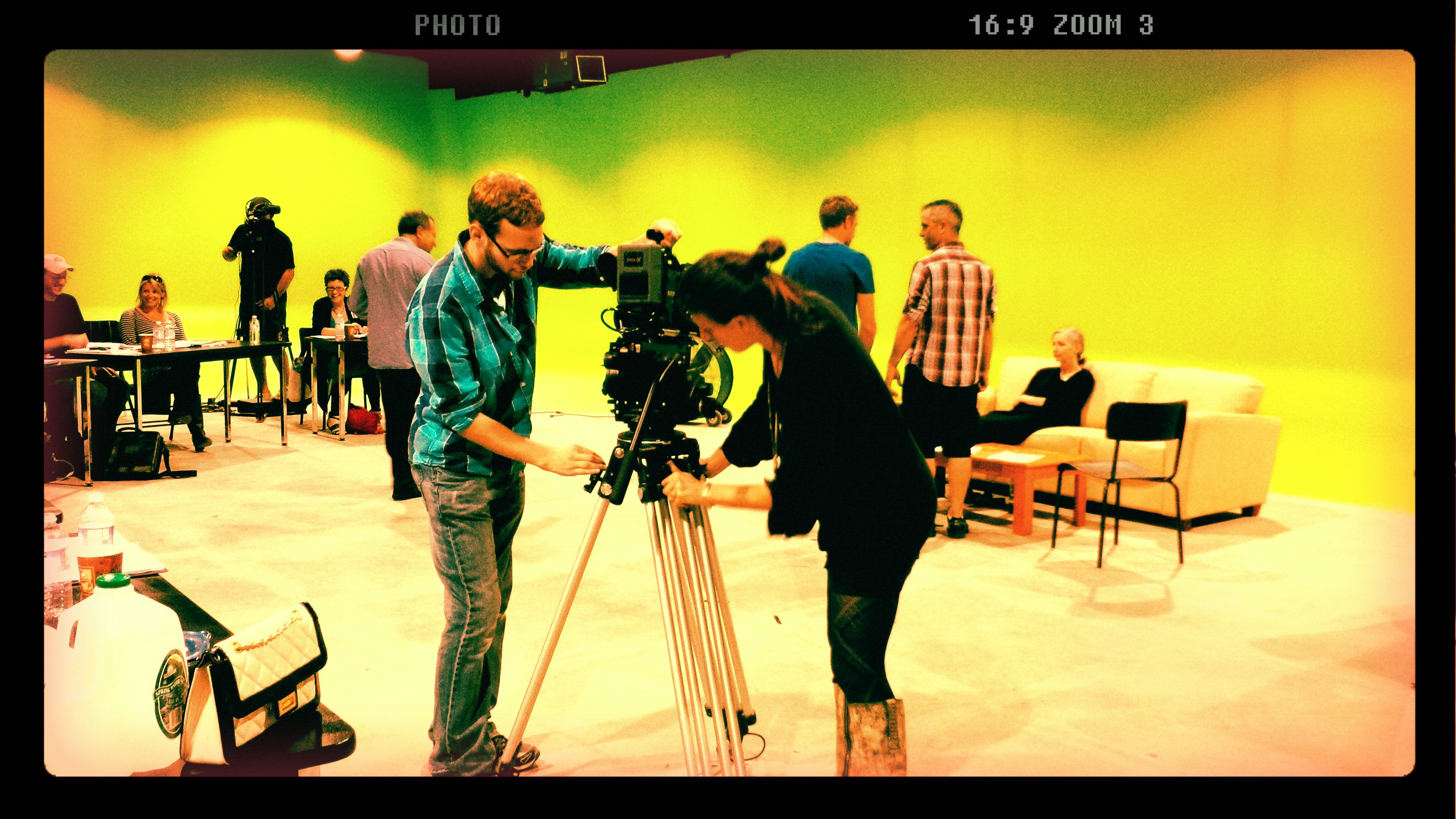
Stefan & Keri-Lynn set up the tripod & camera so that we can view the shot as it would look on the monitor screen.
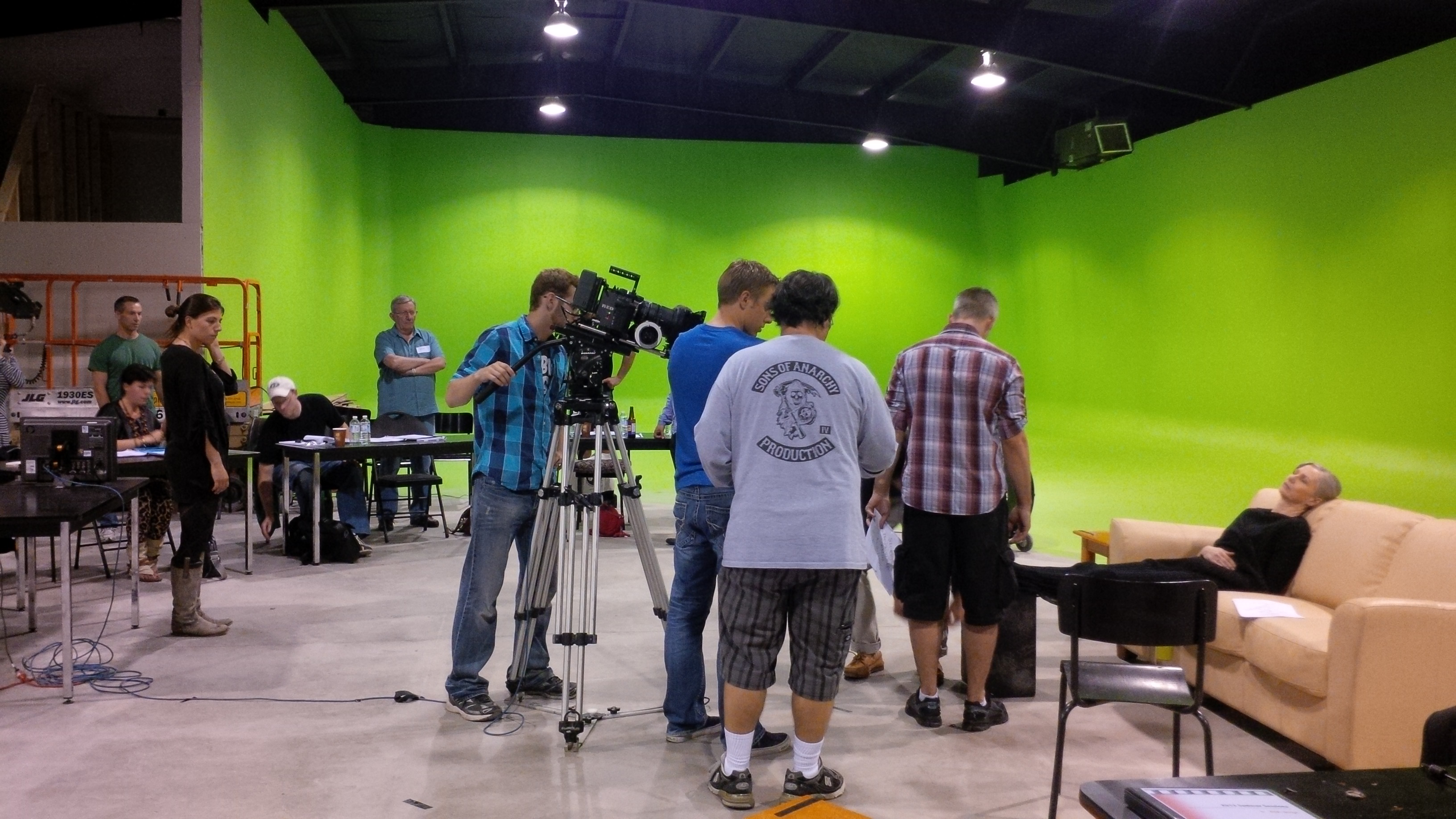
On Saturday, Day 1, Gary helped talk about actors on set from the Production Assistant’s point of view.
We learned about language being the way in which we communicate an idea. The sign and signifier – the sign being the symbol and the signifier, being the implied meaning (which is often culturally dependent).
In the context of film, the actor’s face is often the sign and their expression (what the audience perceives their emotion to be), is the signified.
One really neat fact about film, is that each scene sets up the next. The eyeline between 2 characters in a conversation shot, can create the entire picture for us to understand that these 2 people are having a conversation while sitting across from each other, while in actuality, they may not even be in the same room.
What interested me the most was hearing about the casting process and how an actor gets hired. The whole time, I kept thinking about “Entourage” …about how cool it would be to be in L.A. and live the dream of being a Hollywood actor, having an Agent and a Manager.
From the actor’s world, sometimes it’s not always the offer on the contract that will convince them to take on a role. An actor may take a role to increase their “commodity value”. As typical with any brand, one wants to ensure their image is valuable and will increase ratings and viewers for a show/film.
Take an actor who is typically known for superficial, typical “chick flick” roles. Now suddenly, a role comes up where they have a character with more substance, a more powerful backstory & the chance to show off a different side of their talent. When an actor can increase their commodity value, it’s a no brainer.
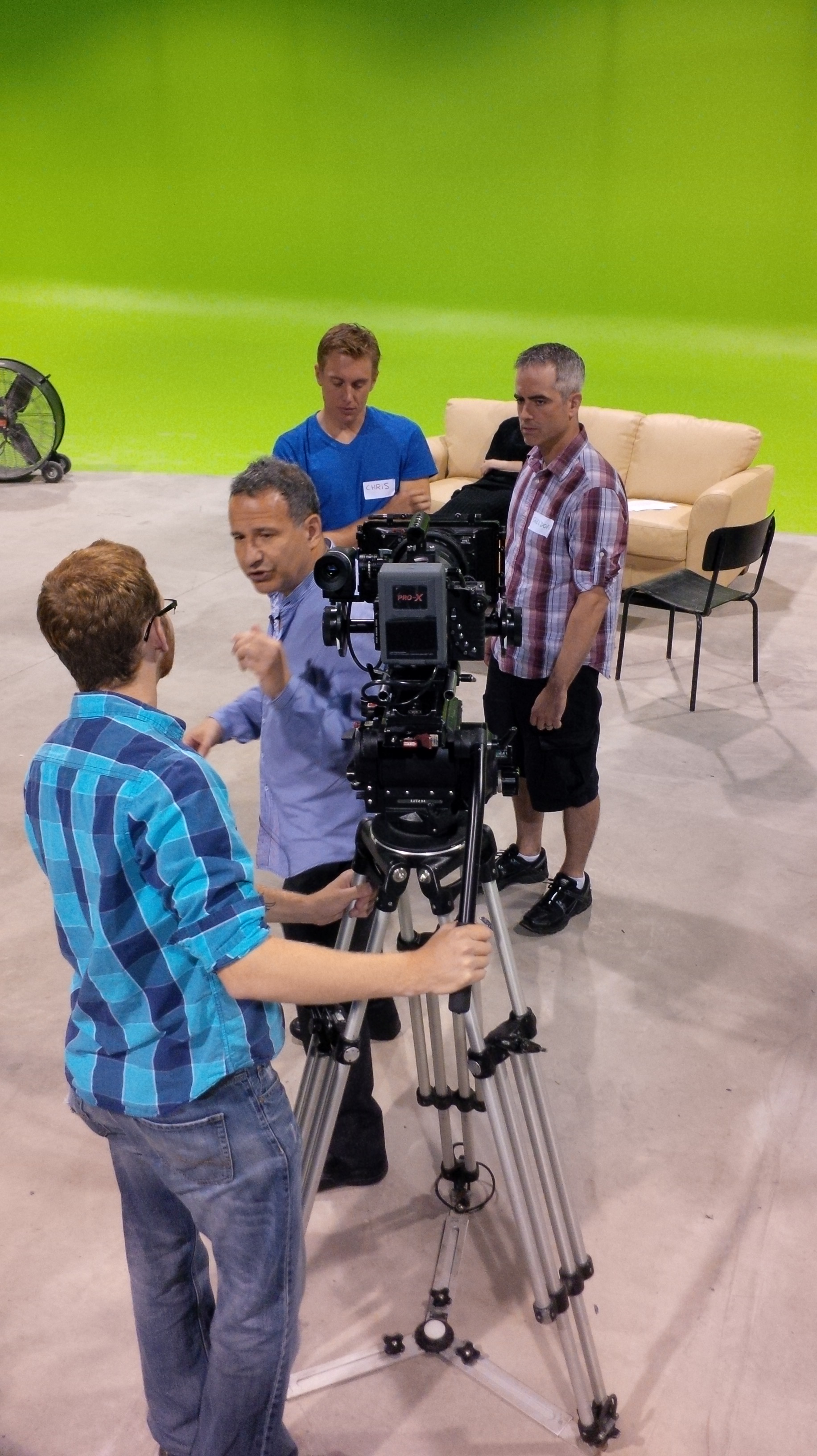
Steven takes a moment to instruct about camera angles & shots with the actors. They are acting out a scene from his feature film “Decoding Annie Parker”.
We talked a lot about acting vs. improv and how improv has this natural flow to it – the “truth”. No one really wants to “act”….it would be better to just have conversation.
It was quite a comparison to see the actors act from the “Decoding Annie Parker” script, and then switch to improv, which felt natural and more real. The improv scenes were so much more believable. Steven stressed that this is largely in part due to the fact that the actors are “in the moment” and are “listening” to what the other person is saying. Great film is like conversation. You never want someone to ask if you are rehearsing your lines – you want them to think you are just living out your life.
The next couple of weeks are going to be exciting ones as I gear up for more film workshops from Steven (feel free to comment on this blog if you would like to know the schedule).
To quote Cat Leblanc, from the NB Film Coop:
Twin Prop Productions is a film and media production company based in Quispamsis, New Brunswick. Film Director, Steven Bernstein, and three local entrepreneurs founded Twin Prop Productions in 2013. It is their vision to invigorate the feature film industry in New Brunswick, by creating a multipurpose filming studio.
We also aim to help train a new generation of film crew with the guidance of experienced Hollywood instructors through multiple workshops from the Steven Bernstein Film Academy. Our first project will be to produce the feature film Dominion, a dramatic depiction of the last few hours of Welsh poet Dylan Thomas’ life in 1950’s New York City.
Steven’s next feature film will be produced and filmed in New Brunswick in the fall of 2013.
For more information and an application form:
Twin Prop Productions
[email protected]
Tel: (506) 645-1067

